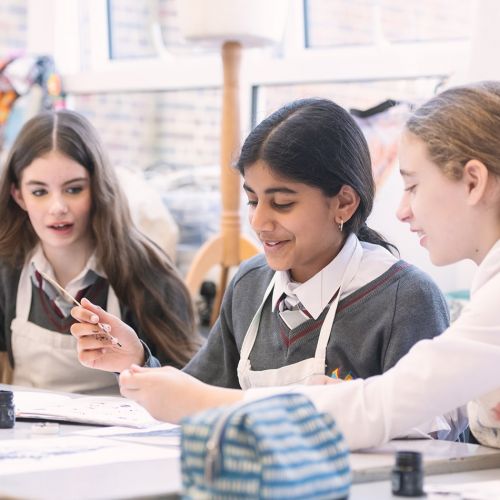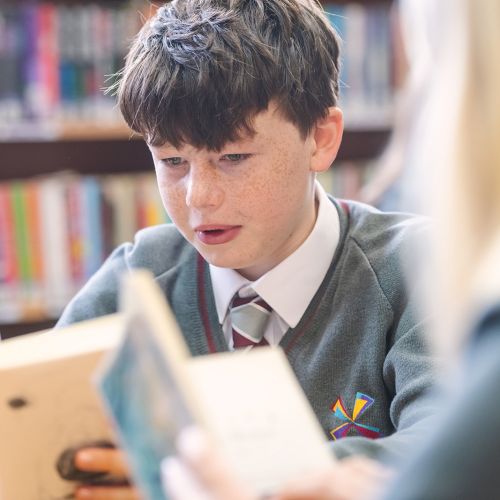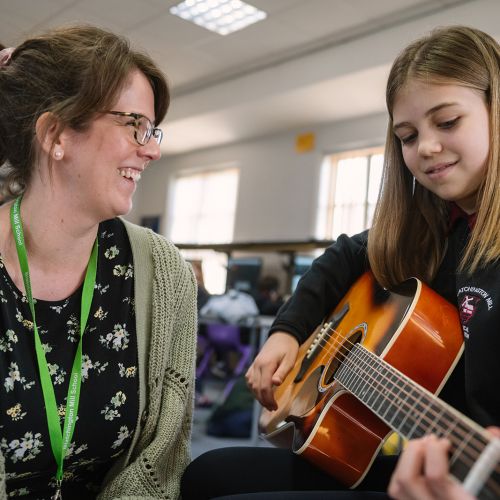Post-16 Progression Evening





Below are the speeches from Ms Claydon, our Head Teacher and Mr Alexander, our Head of Careers. Do have listen if you missed these in the evening itself.
Common themes across both speeches is the need to keep options open and to engage with as many providers as possible in order to make the most informed choice possible. If any student is unsure what they would like to do, or would like to discuss their ideas with our impartial Careers Advisor, they can complete this form to book an appointment with Mrs. Hall. This form will need to be completed by our student, as it is set to only accept @blatchingtonmill.org.uk email addresses.
In addition to this, both speeches include the importance of getting prepared for the move into Post-16 education by way of being as successful as possible now, and throughout this year. Ms. Claydon outlines the resource GCSEPod, which is accessible by clicking here. As a school, we have used GCSEPod for a few years and can vouch for its effectiveness as a revision and learning tool. The site includes lots of videos and resources for a vast array of subjects and, if not already accessed, we would strongly encourage engagement as soon as possible to see just how good it is at supporting all of the work our Year 11s are already undertaking. This resource will prove invaluable for the whole of Key Stage 4 (Years 10 and 11).
Alongside this resource, there are other aspects of planning and improving outcomes this year. Below are the top revision tips with links to more detail:
- Create a study schedule (revision timetable) and start this early. More detail available here.
- Set revision goals. More details available here.
- Make self-care one of the biggest priorities. More details here.
- Use mind-maps to link ideas/content. More details here.
- Condense mind-maps into flash cards. More details here.
- Complete as many papers as possible. Speak with your subject teacher to access these.
- Mix your study habits:
For some ideas on how to keep your revision engaging, try using one or some of the following techniques:
Watch video demonstrations or documentaries.
Listen to podcasts.
Schedule a group study session.
Mix your study time between at-home and at a library or local cafe.
Write about your topic as if you were telling a story.
Try teaching a topic to a friend or family member who has little to no knowledge of it.
Create a presentation, rather than revision notes. - Revise with others. You may benefit from teaching others what you know or testing them on what they know. Not only is this a great way to help your friends but you’ll see where there are still holes in your own learning. Having a small study group can also be a great way to come up with unique methods for remembering key ideas.
- Take breaks. Revision is only effective when split up by breaks. Don’t overwork yourself and make sure you’re giving your brain some space to breathe. You’ll get distracted less and be able to focus for longer. Use these breaks to fit in any exercise or healthy eating, which will only improve the quality of your revision.
- Move around. A productive way to spend your study break. The benefits of exercise on revision include increased focus, improved memory and the chance to readdress any hard topics with a fresh mind. A simple walk around the block can be all it takes to improve your quality of learning.
- Eat healthily. Choose healthy foods to eat during your study breaks. The quality of what you put in will dictate the quality you put out. Swapping crisps or chocolate for nuts or fruit will leave you feeling less lethargic in the afternoon and with more energy to learn. But do remember balance. You don’t have to cut out your favourite treats completely. Moderation is key.
- Sleep. These GCSE revision tips won’t be effective unless you get sufficient sleep. Prioritise getting 7–9 hours a night. Sleep is a powerful tool for not only committing what you’ve learnt during the day to long-term memory, but it also improves your cognitive ability to learn again the following day. You’ll be better able to concentrate, and feel more motivated, after a good night’s rest.
The advice above was taken from a variety of evidence-informed sites and makes for a very good checklist for getting things right from now and will equip our Year 11 learners well to take on their GCSEs and make a successful move into their Post-16 choices.

